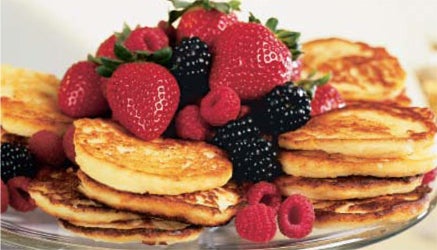The Lights Fantastic

Hanukkah—the Festival of Lights—is a joyous holiday celebrated for eight days sometime between the end of November and late December. Hanukkah commemorates a miracle—the burning of a small portion of pure olive oil for eight days—that occurred more than 2,000 years ago in the second century BC. In the land of Judea, now Israel, a group of Jewish men, under the leadership of Judah Maccabee, fought for religious freedom. When the Jewish fighters recaptured the Temple of Jerusalem from their Greek oppressors, they wanted to rededicate the Temple, which had been destroyed and contaminated by the enemy, and to relight the eternal light. But the victors found only a day’s worth of olive oil to burn.
Yet tradition says that the small amount of oil burned for 8 days until new oil was readied. In remembrance of that miracle, Hanukkah celebrants light one candle in a menorah each night for 8 nights, offer blessings of thanksgiving, give or exchange gifts and money (Hanukkah gelt, either real or chocolate) and play games.
Hanukkah is also replete with foods fried in or made with oil to remind us of this miracle. These foods are often supplemented with dairy dishes in remembrance of Judith. She saved her town by feeding the enemy’s general salty cheese, causing him to become thirsty. He drank so much wine that he became inebriated and fell asleep. While he slept, Judith decapitated him. Popular Hanukkah dishes include bimuelos, the rounded fried doughnuts dipped in honey and rolled in cinnamon, enjoyed by Sephardic Jews (Jews from Spain and Portugal); sufganiyot, jelly-filled doughnuts, enjoyed by Israelis; and latkes, or pancakes, usually made with grated potatoes and served with applesauce and sour cream, a dish favored by Ashkenazic Jews (Jews of Russian, Polish and German descent).
Using potatoes in latkes is a modern innovationeven though potatoes arrived in Europe in the 1600sbeginning in the 18th century in Europe and the Middle East, by which time the custom of eating foods cooked in oil on Hanukkah had become a long-established tradition. Sheilah Kaufman, a Washington, DC-based cookbook author and cooking teacher who specializes in Jewish foodsespecially kosher and Jewish holiday foodscontributed these recipes. She is also the food editor of the Jewish Women International’s website, www.jwmag.org. Her personal website is www.cookingwithsheilah.com.